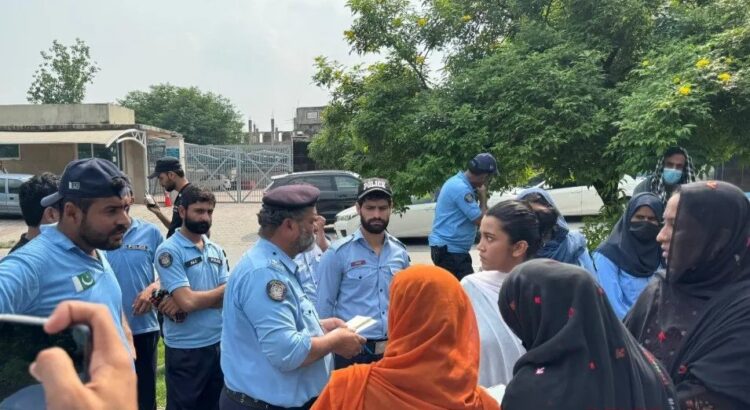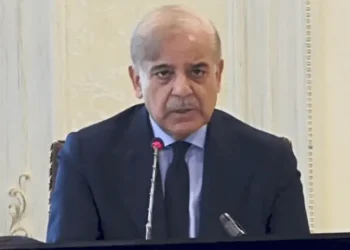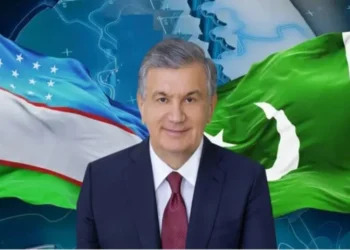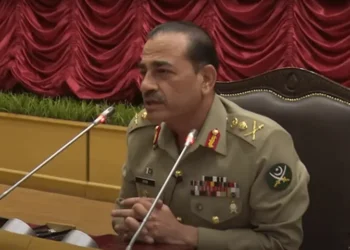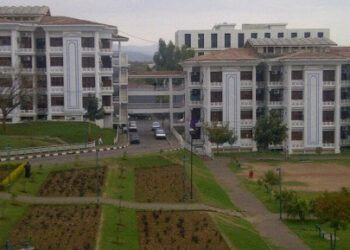ISLAMABAD; The Baloch Yakjehti Committee (BYC), a rights group known for its activism against enforced disappearances in Balochistan, marked the 12th consecutive day of its sit-in protest in Islamabad on Sunday, demanding the immediate release of its detained leaders, including Dr. Mahrang Baloch.
Tensions escalated further as protesters alleged harassment by police, including demands to show Computerised National Identity Cards (CNICs), surveillance, and intimidation.
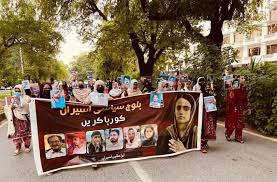
Formed in 2018, the BYC has become a prominent voice advocating for the rights of Baloch individuals subjected to enforced disappearances, state violence, and systemic neglect. Its activities, largely led by students and young activists, have frequently faced state pushback.
The group’s current protest stems from the arrest of Dr. Mahrang Baloch and several other members on March 22, a day after police cracked down on a demonstration in Quetta. Authorities accused them of inciting violence and attacking the Civil Hospital in Quetta — charges BYC supporters have categorically denied.
Earlier this month, an anti-terrorism court remanded the detained activists into police custody for 15 days, triggering fresh protests in Islamabad. The sit-in began on July 16 near the National Press Club and quickly drew national attention, with politicians, journalists, human rights defenders, and civil society members showing solidarity with the demonstrators.
Despite heavy rainfall and sweltering heat in Islamabad, the protest has persisted. The route leading to the National Press Club has been barricaded with barbed wire, and demonstrators report being prevented from returning to their original protest site.
In recent days, tensions have spiked due to an incident captured in a video shared by protesters, showing police officers demanding to see participants’ CNICs. Protesters questioned the sudden enforcement of this rule after 12 days of peaceful demonstration. A police officer in the video responded, “This rule was implemented today.”
One protester refused to show their ID card, saying their lawyer was en route to the scene. Human rights lawyer and activist Imaan Zainab Mazari-Hazir, who has been supporting the protest, later told the media that the protesters were deliberately withholding their CNICs due to fears of retaliation. “Yesterday, individuals filmed protesters, identified them, and since then, their homes are being raided,” she said. “This is why we are not providing identification.”

The BYC, in a series of posts on X (formerly Twitter), condemned the Islamabad Police’s actions, alleging that law enforcement and intelligence agencies were stalking activists, especially elderly mothers and women, photographing their temporary shelters and instilling fear. “Inside the protest space itself, LEA officials are regularly entering and capturing videos of students’ faces to instil fear,” the group said. It called the police demand for CNICs “a tactic to escalate harassment, suppress, and intimidate.”
The group also highlighted the inhumane conditions in which the protesters have been forced to demonstrate, stating that despite scorching heat and heavy rain, authorities have not permitted them to set up a proper protest camp. “Every day, multiple elderly women and children faint from heat exhaustion,” the BYC said.
The ongoing crackdown on the Baloch protesters has raised wider questions about the shrinking space for peaceful protest and dissent in Pakistan. While the state has repeatedly framed such sit-ins as threats to public order or national security, rights groups argue they reflect deep-seated grievances rooted in decades of marginalisation and human rights violations in Balochistan.
As the sit-in enters its third week, the BYC shows no sign of backing down, insisting that its protest is lawful, peaceful, and rooted in constitutional rights. With growing public support and international human rights observers taking note, pressure is mounting on the state to release the detained activists and allow space for peaceful political expression.




















































